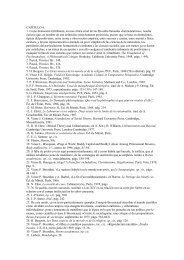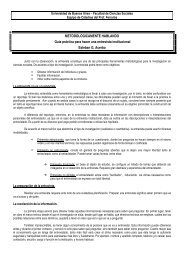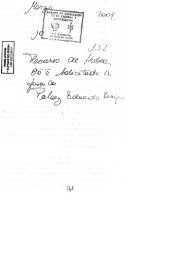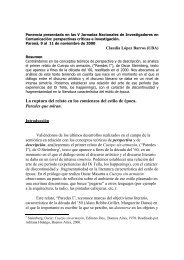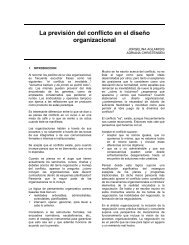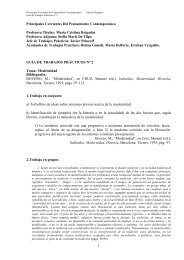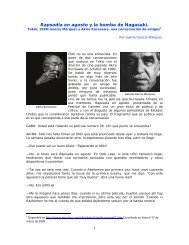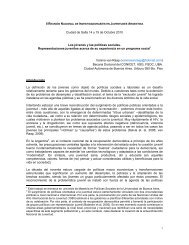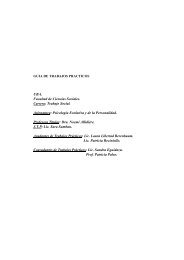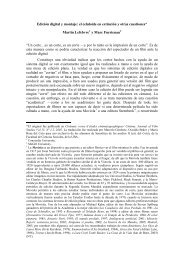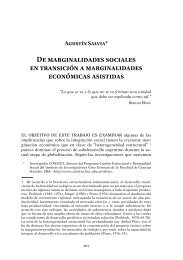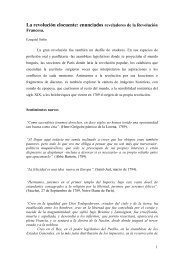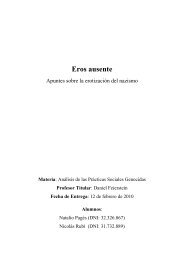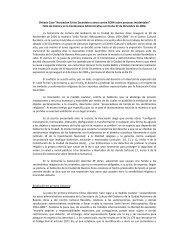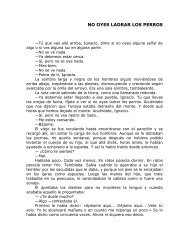Charisma Reconsidered
Charisma Reconsidered
Charisma Reconsidered
Create successful ePaper yourself
Turn your PDF publications into a flip-book with our unique Google optimized e-Paper software.
or Hitler may lead one to recognize their extraordinary character and even to<br />
attribute a divine spark to them, but this mere fact of success and recognition by<br />
itself would not induce one to obey their commands or completely reorient one’s<br />
attitude toward life. Something seems to be missing in this account – some<br />
connecting link between success and metanoia.<br />
Weber is inclined to supply this link through the notions of command and<br />
obligation, reflecting the origins of the problem of charisma in the context of law,<br />
but also reflecting the large role that the concept of duty still held in his moral<br />
world. The content of the commands made by the leader, or the demands of duty<br />
imposed by the teachings of the leader, are thus the link. Success and its<br />
recognition give charismatic force to these demands, one might say, just as state<br />
coercion gives force to ordinary legal commands and obligations.<br />
Doubtless there are many cases that this fits. But if we ask the question<br />
‘What does the charismatic power of the singer Madonna consist in?,’ we seem to<br />
find cultural originality, success, adulation, and in this sense a kind of devotion, as<br />
well as metanoia among her devotees, but without any trace of obligation or<br />
command. They are, as the expression coined for them had it, ‘wannabees’. And<br />
this hints that rather than directing us to an explanation of cultural change, we are<br />
directed away from it by the notion of obligation.<br />
The problem here may be stated in various ways, but in its simplest form it<br />
is this: Weber needs an analogue to traditional and rational-legal authority, each of<br />
which is ‘recognized’ as legitimate authority. In the case of charisma, what must<br />
be recognized is not a set of rules, by definition, because charisma does not consist<br />
of rules. To be analogous to the recognition of the legal system of rules, there<br />
must be something to recognize, and if it is not a set of rules, it must be<br />
something else that is intrinsically authoritative – the charismatic leader whose<br />
commandments are received as law. This means that Weber is condemned to a<br />
quest for the intrinsic authority-granting property that is ‘recognized’ in the<br />
charismatic leader. Naming this property ‘charisma’, however, is a dead end if the<br />
external manifestations of charisma that can be discussed trans-historically, that is<br />
to say, without the analyst accepting the cultural ideas (e.g. the ‘divine spark’ of<br />
sacredness) of those who recognize charisma, do not connect to the fact to be<br />
explained, namely its authority-producing character. Weber described patterns,<br />
notably the cycle of tests of charisma, without solving this problem.<br />
One solution to this problem, which I have discussed at greater length<br />
elsewhere (Turner, 1993), is to begin by explaining the connection between the<br />
exceptionality of the leader and the power to transform the follower, and then to<br />
account for the authority of the leader by derivation. The argument is easily<br />
understood in its application to such cases as the singer Madonna. Madonna has<br />
influenced followers whose inner transformation of attitudes, mode of dress, and<br />
so forth, consists in their imitation of various features of her own publicly<br />
exhibited attitudes and mode of dress. Her success was originary – the style and<br />
attitudes were not only unconventional but self-consciously anti-conventional.<br />
TURNER CHARISMA RECONSIDERED 15



